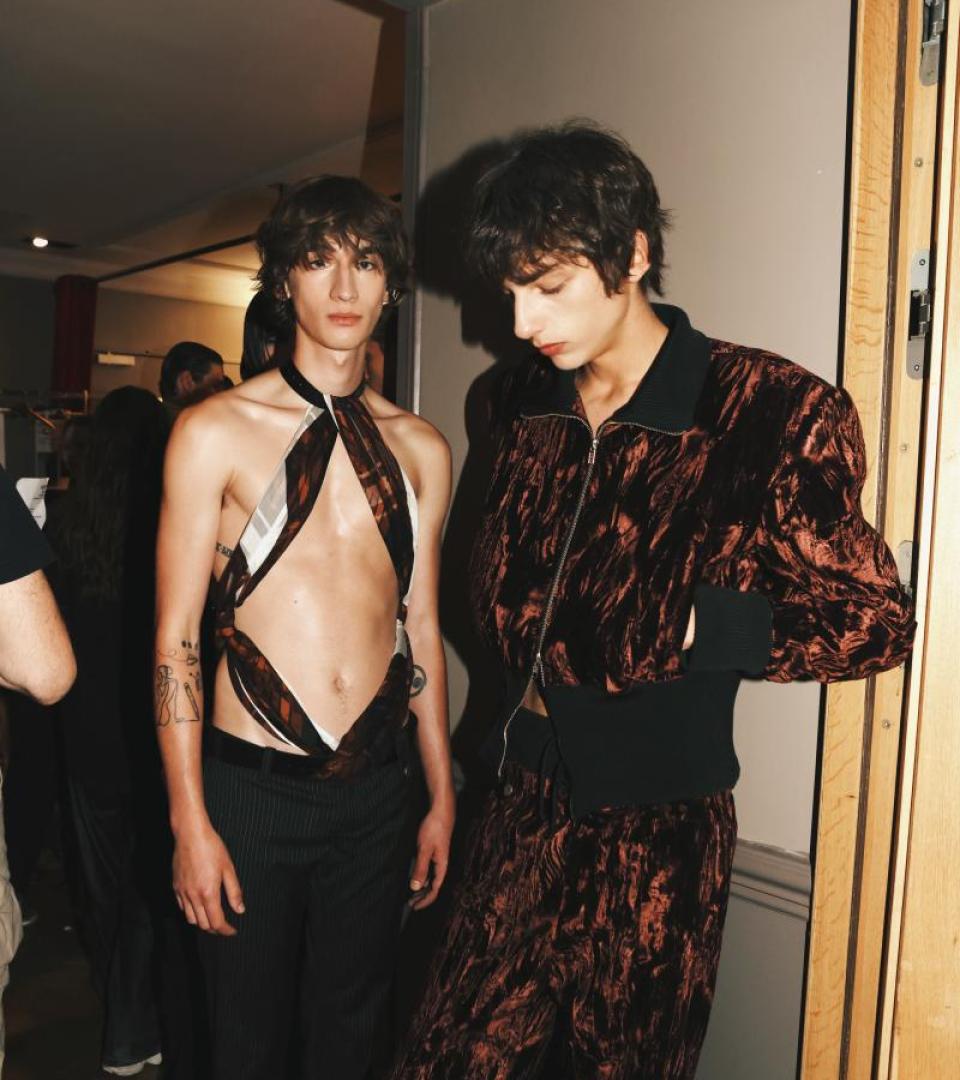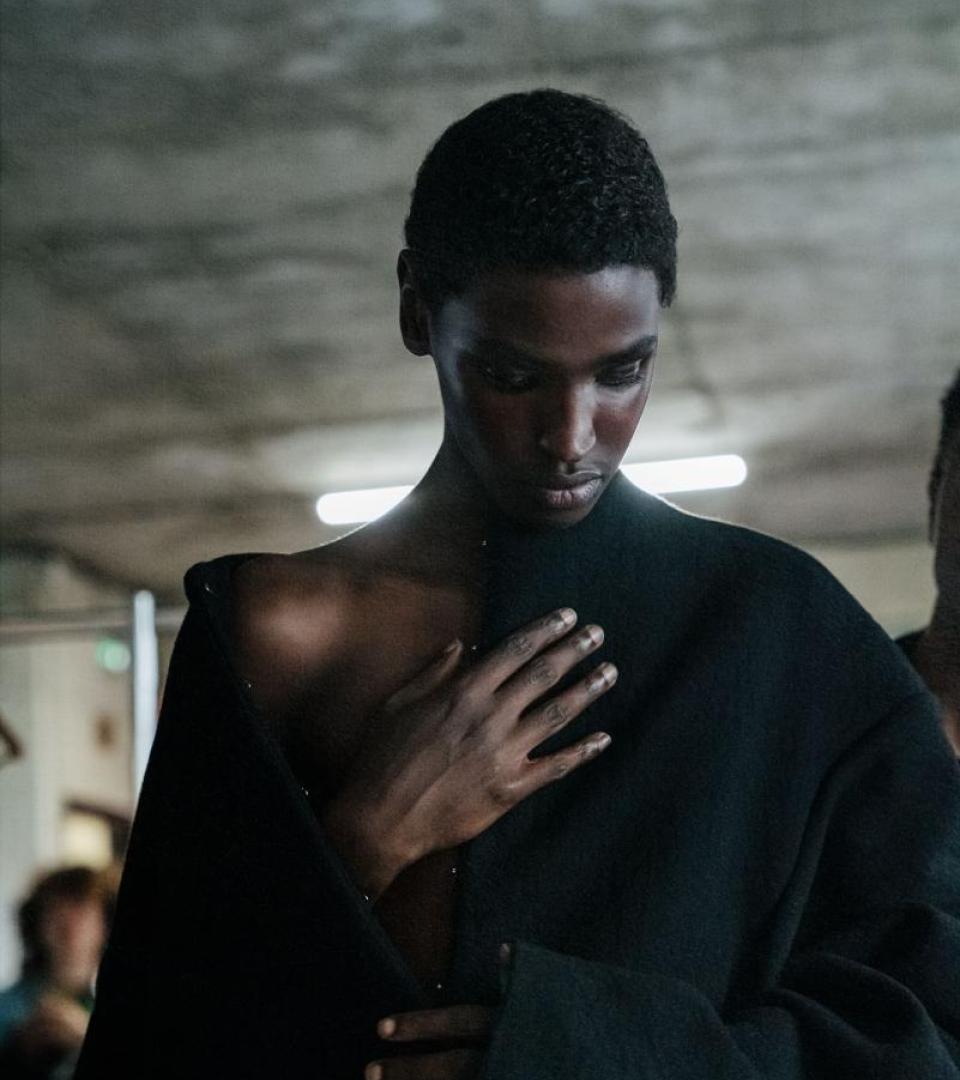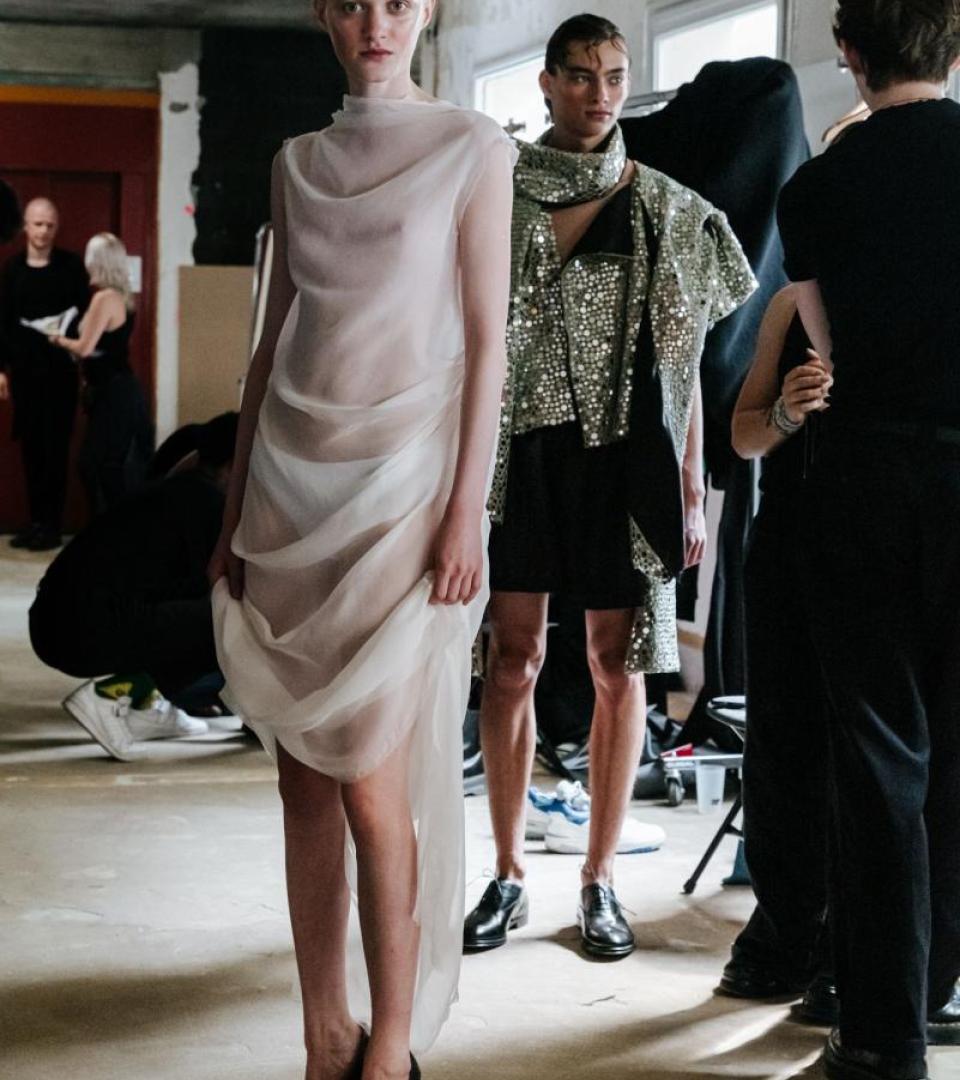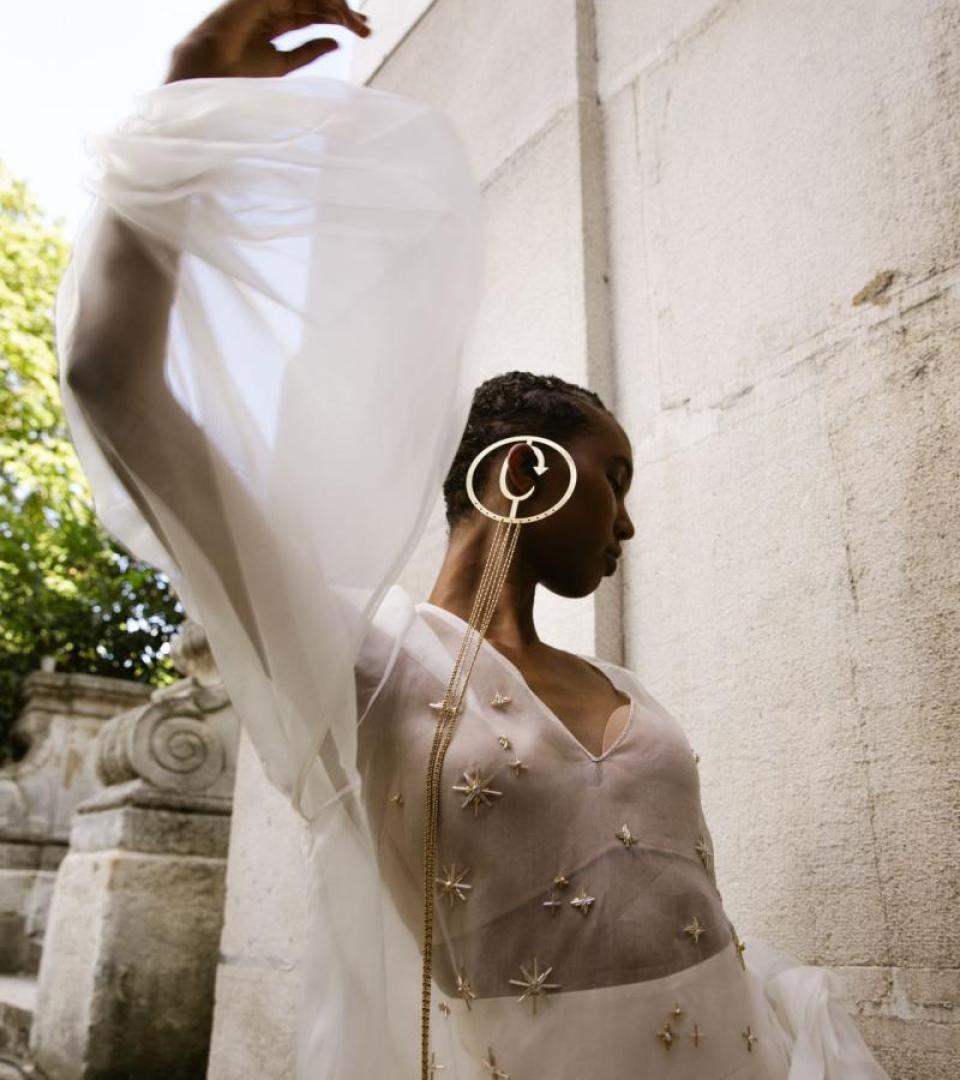Sylvie Ebel: “Fashion is at the forefront of societal change.”
Vice Dean of the Institut Français de la Mode and President of the Board of Directors of the Paris Good Fashion association, Sylvie Ebel views fashion as a driving force for sustainable and societal change. Convinced that change can only come about through collective action, the organisations she is committed to are spaces for gathering, exchange, and inclusion.
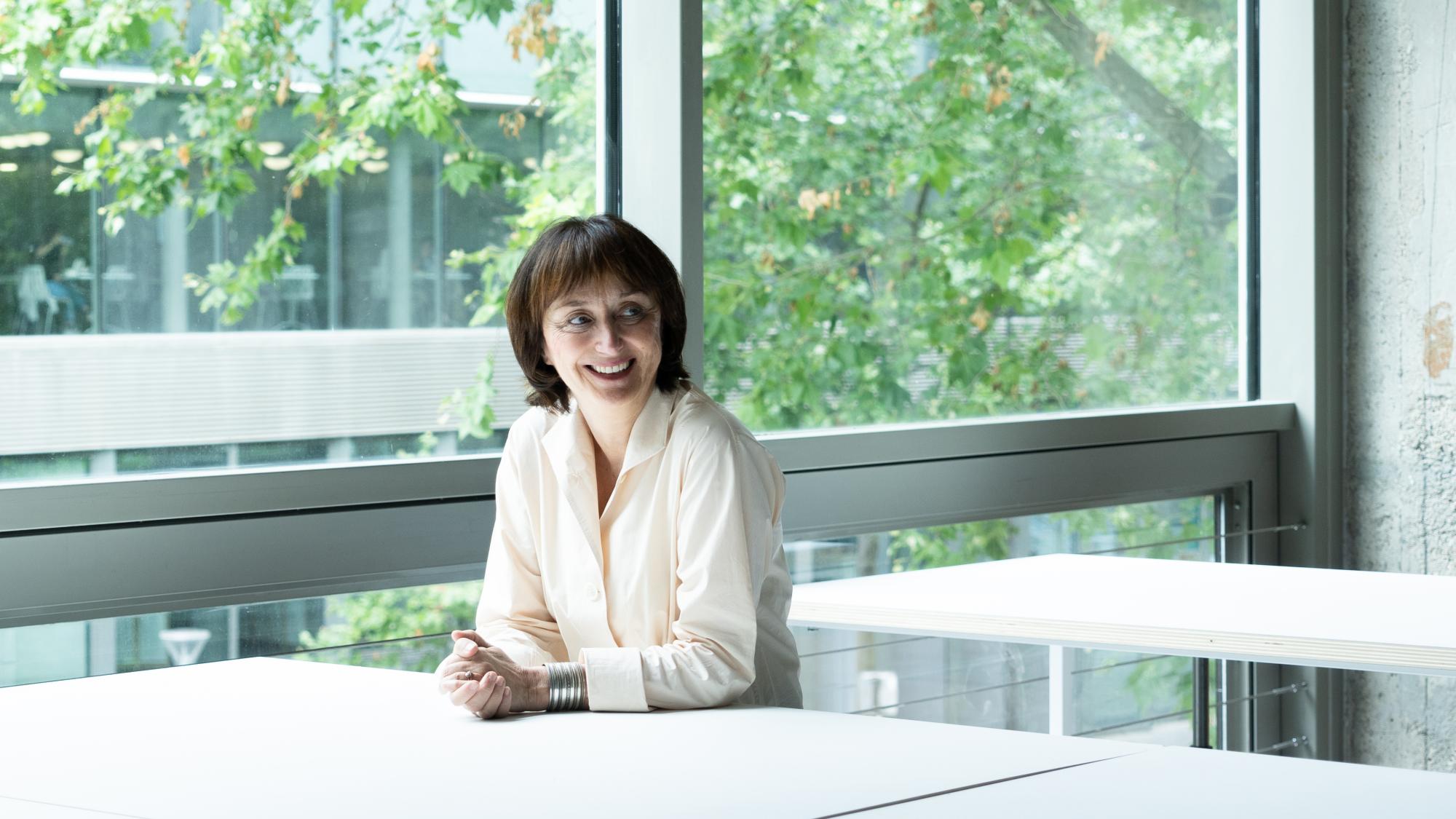
©Emilie Moutaud
“The association brings together all the players in the sector around the same table — from luxury goods to mass retailing, from managers to designers,” says Ebel, who was elected Chair of the Paris Good Fashion Board of Directors last July. The ambition of the association, co-founded in 2019 by Isabelle Lefort and Laure Du Pavillon, is crystal clear: “To make Paris the exemplary capital of responsible fashion by 2030.” Ebel takes over from Sylvie Bénard, who was also Environmental Director of the LVMH Group from 1992 to 2020. With nearly 110 members, including the biggest French luxury groups, major retailers and institutions, Paris Good Fashion stands out for its ability to bring together actors of different domains to address current issues.
“Most of the projects come from requests from its members. We work together,” she explains. In this way, the association acts as a neutral focal point, away from any activism, “which isn't a bad thing - there has to be room for everyone, but that's not our position.” Among the dozens of successful projects carried out since its launch is the “Act” methodological study, supported by DEFI and Ademe, which enables any company to audit its environmental impact. Its second component is entitled “Trajectoire”, so that each structure can build its own roadmap towards a common objective, in line with the Paris Agreement. The association has also compiled a glossary of 355 definitions to establish a common language around sustainability.
“It's not about doing what others are already doing. We want to be complementary, to contribute with our expertise.” The challenge, according to Ebel, is to remain close to the current and future concerns of the industry. The launch of the Forever Young Committee last January, on the occasion of the association's fifth anniversary, marks the will to represent younger generations and to integrate their vision. The association has now established itself as a key player in accelerating the sector's ecological transition. It is this same dynamic of bringing people together and openness that she has always sought to apply to the Institut Français de la Mode.
“No graduating student leaves the Institut Français de la Mode without having received training in sustainability issues.”
“The Institut Français de la Mode and Paris Good Fashion have a lot in common,” she stresses. The school is a meeting place for designers, craftspeople and managers, where all the academic courses are based on a common core. “Our management and design students have been following a course dedicated to sustainable development for several years now. We started ten years ago at the students' request, by scheduling a dedicated week. Then we decided that we needed to go further.” Ebel then played an active role in recruiting Andrée-Anne Lemieux, who was appointed Professor and Director of the IFM-Kering Sustainability Chair in September 2019. In addition to the compulsory courses, other options and specialities are offered in all curricula. Andrée-Anne Lemieux, a recognised expert “both internally and externally” - and involved in Paris Good Fashion projects - also heads up the IFM's Fashion and Luxury Sustainable Development Certificate, which equips future professionals in the sector to integrate sustainability into every stage of their strategies.
“It’s a privilege to be directly connected with the new generations, who are passionate about creativity.”
In 2019, Sylvie Ebel co-piloted a major transformation: the merger of the Chambre Syndicale de la Couture Parisienne School and the IFM, “thanks in particular to the Fédération de la Haute Couture et de la Mode and its Members. The best Fashion Week in the world had to be paired with the best school in the world.” That same year, Xavier Romatet, former President of Condé Nast from 2006 to 2018, was appointed Managing Director of the school, taking over the reins of what was to become the leading fashion school in Paris. Since June 2022, Sidney Toledano, who has been an IFM trustee for over twenty years, has chaired the school's Board of Directors.
Wandering the corridors of the school for a few minutes is enough to hear and observe an exceptional diversity of profiles. Seventy nationalities mingle and exchange ideas, drawn together by their passion for creation. There is also a diversity of socio-professional backgrounds: for example, today, 25 percent of students in the Bachelor's degree in fashion design receive grants. This is a reality made possible by the IFM Foundation, which supports the development of the school's research and teaching innovation and enables it to implement its equal opportunities policy by funding grants for students. The Foundation is currently chaired by Bruno Pavlovsky.
“I have to say that we have very few tourists among our applicants,” she says with a smile. “The École de la Chambre Syndicale had an excellent level of know-how, and the IFM in management.” The best of both worlds combined, and a strong investment in the development of the creative department, which now places the school on a par with the most prestigious establishments. “Today, the main source of recruitment for our Master's in design is Central Saint Martins. The IFM promises academic excellence and professional expertise. We train for employability.”
“It's a complex, sophisticated industry. Of course, there's all the media coverage, the fashion shows, the artistic direction, the dreams, sometimes mirages, but that's just the tip of the iceberg.”
Sylvie Ebel has been at the IFM for more than 30 years, and has witnessed the enormous economic, social and cultural impact of the luxury industry. “Luxury has driven an entire sector. The IFM was created because specific training was needed. We needed to acquire knowledge and a common language.” Luxury, fashion and design are key drivers of France's image and global influence. And the sector's weighting in the CAC40 bears witness to this. “Young people who naturally turned to the leading business schools thought they could build a great career in this industry. The IFM has played a role in catalysing and supporting this change.”
“I was part of the third graduating class of HEC business school, which was open to women.”
“When I say that to my children, they look at me with big eyes,” she shares. She played an active role in launching the HEC au Féminin association long after she graduated, “I was already at the IFM,” she recalls. “I chaired the Textiles and Fashion group. At a General Meeting of HEC alumni, I found myself amongst 300 men... and 20 women. When I expressed my surprise, I was told that more often than not, women stop their careers.” And Ebel stood up again to contradict the absurd statement that had just been made. The HEC au Féminin association, renamed We&Men in 2023, has continued to grow ever since, bringing together female graduates and fuelling the debates that are essential for parity and inclusion.
In December 2022, Ebel received the Légion d'Honneur from Sidney Toledano at the IFM, in this new space inaugurated almost a year to the day earlier. “I would like to thank the women who have built and continue to build the IFM. They are the backbone of this institution.” she said at the time. Two years later, she notes that the sector is evolving about parity. “I've seen the evolution, which fortunately is significant. Fashion is at the forefront of societal change.”
The luxury goods, fashion and design sectors have taken on board the major environmental and social issues of our time. The various regulations, laws and standards in force or in the process of being activated at French and European level are shaping the sector and shifting its patterns. This titanic task is being carried out in stages, collectively, with the acceptance and promotion of diversity becoming an essential condition of this pivot. “Of course, we sometimes have doubts. But we can't just hand the keys over to the younger generation and tell them to fend for themselves. I hate this kind of Pontius-Pilate attitude,” asserts Ebel, who has always seen her values as responsibilities to be fully assumed, primarily by training the younger generation to become key leaders of change, with the utmost rigour and optimism.
